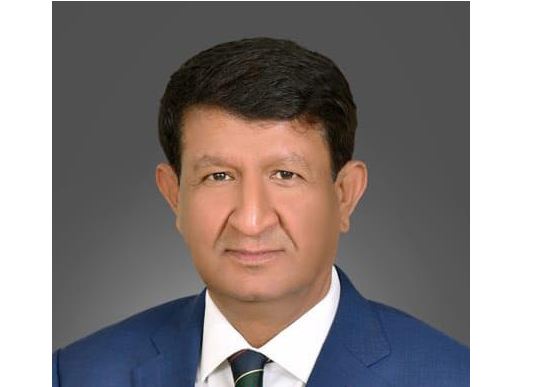Ishtiaq Ahmad
As the Turkish Republic of Northern Cyprus celebrates the 40th anniversary of its independence today, the conflict in the eastern Mediterranean island remains stuck in history. Since the breakup of the bicameral and bizonal partnership Republic of Cyprus in 1963, the majority Greek and minority Turkish communities have lived separately.
In 1964, the UN gave only the Greek Cypriot administration the right to solely represent the Government of Cyprus. This was a violation of the founding principle of the 1960 partnership Republic, which provided political equality to the Turkish people. Consequently, with little incentive to share power with their Turkish counterparts, the Greek Cypriots have consistently sabotaged successive UN efforts to resolve the conflict by reuniting the island.
Frustrated with the prolonged stalemate in UN-sponsored talks, the Turkish Cypriot leadership has finally said ‘enough is enough,’by proposing a two-state solution at the 5+UN informal meeting on Cyprus in Genevain April 2021. This marks a turning point in the conflict resolution process that started amid the communal hostilities in 1968.Since then, the UN has taken several initiatives for the establishment of a “bi-zonal and bi-communal federation” based on political equality of the two sides
These include the 1985-86 Draft Framework Agreement; the UN-sponsored Set of Ideas of 1992, the Package of Confidence Building Measures of 1994, the UN Comprehensive Settlement Plan proposed by former UN Secretary General Kofi Annan in April 2004,the 5+UN formal negotiations till the Cyprus Conference held in Crans-Montana, Switzerland during 2008-17 and the 5+UN informal meeting on Cyprus in Geneva in April 2021.
Unfortunately, all of these UN initiatives have collapsed due to intransigence of the Greek Cypriot side. The Annan Plan was rejected by the Greek Cypriots and approved by the Turkish Cypriots in separate but simultaneous referendums held in May 2004. Despite this, the EU awarded membership to the Republic of Cyprus, which represents only the Greek Cypriot side. On the other hand, the Turkish Cypriot people, who voted in favour of the Annan Plan, continue to be subjected to illegal restrictions and embargoes.
The UN -led process to find a peaceful end to the conflict suffered a standstill for the next four years as EU membership fuelled the intransigence of the Greek Cypriot. In 2008, negotiations for a bi-zonal, bi-communal federation, based on the same UN parameters, resumed. This process took place intermittently until the Cyprus Conference in 2017, attended by the 5+UN, which met the same fate at the hands of the Greek Cypriot side.
Following the collapse of the Cyprus Conference, UN Secretary-General Antonio Guterres called for a period of reflection for the sides to decide the way forward.Thereafter, the Turkish Cypriot leadership declared that it would no longer be negotiating on the basis of the defunct UN parameters.
In November 2019, the UN Secretary General met informally with the Turkish Cypriot and the Greek Cypriot leaders. After the meeting, he pledged to explore the possibility to convene an informal 5+UN meeting to “determine whether common ground exists for the parties to negotiate a sustainable, lasting solution to the Cyprus problem within a foreseeable horizon”.
At this meeting, held in Geneva on 27-29 April 2021, the Greek Cypriot side and Greece did not present any new idea for the establishment of a “bi-zonal, bi-communal federation,”reflecting its usual intent of sabotaging the negotiating process. The Turkish Cypriot side, on the other hand, responded to Secretary General’s call on the two sides to “think outside the box” by proposing a two-state solution to break the deadlock in the decades-long negotiations conducted on the same basis and modalities.
The essence of the Turkish Cypriot proposal is to secure the inherent sovereign equality and equal international status of the TRNC, through which a new basis will be brought about for the parties to embark on formal negotiations to set up a freely negotiated and mutually acceptable cooperative relationship.It is an outcome of a historic injustice against the Turkish Cypriot people.
It is an undeniable fact that the usurpation of the partnership Republic of Cyprus and the expulsion of Turkish Cypriot people from all organs of the partnership state by the Greek Cypriots, resulted in, out of necessity, the culmination of the legislative, executive and judiciary of the Turkish Cypriot side into the TRNC and the presence of two states on the island that are each governed by its own people.
At the end of the informal 5+UN meeting in April 2021, the Secretary-General stated that “we have not yet found enough common grounds to allow for the resumption of formal negotiations in relation to the settlement of the Cyprus problem” and also said that he will convene another informal 5+UN meeting probably in two to three months, “with the objective to move in the direction of reaching common ground to allow for formal negotiations to start”.
However, as the experience in the past negotiations suggests that establishing equilibrium between the two sides, prior to possible formal negotiations, not only at the negotiation table, but also outside is a prerequisite.If the inherent sovereign equality and equal international status of the TRNC is acknowledged, only then a new basis will be brought about for the parties to embark on a formal negotiation process to set up a freely negotiated and mutually acceptable cooperative relationship.
As for maintaining the dialogue between the two sides on the island, the Turkish Cypriot side has stated that it is ready to work together with the Greek Cypriot side. Two sets of proposals towards were communicated by TRNC President Ersin Tatar to Secretary General Guterres in July 2022. These proposals foresee the establishment of a Cooperation Mechanism on the foregoing issues of mutual concern such as hydrocarbons, electricity, renewable energy and water, as well as cooperation on the issues of demining of the island and irregular migration.
To be concluded.
The writer is an international relations expert.















